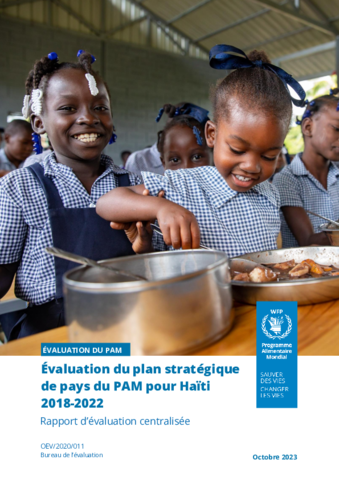
The evaluation was commissioned by the WFP Office of Evaluation to provide evidence for accountability and learning, and to inform the design of the next country strategic plan (CSP) for Haiti.
The evaluation covered all WFP activities implemented between January 2018 and July 2022 including WFP’s strategic positioning, its effectiveness in contributing to strategic outcomes, the efficiency of CSP implementation and factors explaining WFP’s performance.
It concluded that:
- Despite the very challenging country context, WFP managed to adapt the CSP to the changing context, and assist large numbers of people in need.
- The intended shifts from saving lives to changing lives and towards stronger integration of activities were hampered by contextual and funding constraints, keeping WFP focused on emergency assistance.
- Resilience activities were more difficult to fund, highlighting the need to further convince donors of WFP's full mandate and growing resilience-building capacity.
- Overall, WFP is an effective and trusted partner to the Government, donors, and humanitarian actors. By providing essential services to humanitarian and development actors, WFP helped ensure more effective and efficient emergency assistance. However, WFP did not maximize partnerships with UN agencies with long-standing development expertise in Haiti.
- WFP’s strategy and staff capacity need strengthening to achieve transformative gender results. Humanitarian principles and protection were integrated into WFP's work, but beneficiary feedback mechanisms remained underutilized.
